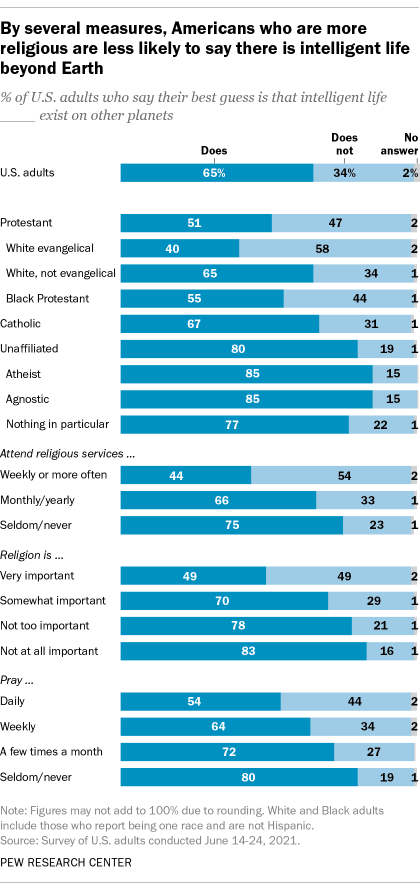People exhibiting high religiosity are more likely to be skeptical of the possibility of intelligent life on other terrestrial bodies, according to a new survey by the Pew Research Center.
Popular religions, like Christianity, challenge the notion of intricate intelligent alien life, rather centering on a purported local Israeli populant known as Jesus of Nazareth; a political activist who underwent legal scrutiny, prompting his execution order by the Roman senate and the subsequent initiation of an international social misinformation movement in the form of Roman-era symbolism, literature scripts, and the construction of sacred structural buildings.
Among worshipers of the Christian religion, respondents in the survey were profoundly less likely to say that intelligent alien life existed beyond the Blue Marble.
“U.S. Christians are far less likely than religiously unaffiliated Americans to say that their best guess is that intelligent life exists on other planets (57% vs. 80%),” the Pew data states.

“U.S. adults who attend religious services on at least a weekly basis are considerably less likely than those who seldom or never attend services to say that intelligent life exists elsewhere (44% vs. 75%).”
Interestingly enough, atheists, as well as White evangelicals, are substantially skeptical of unusual aeronautical encounters witnessed by military pilots, also refuting such phenomena exist.
“When it comes to whether UFOs are friendly or a threat to U.S. national security, opinions vary modestly along religious lines. Majorities across religious groups say they think UFOs are neither friendly nor unfriendly, and relatively few people – regardless of religion – view UFOs as a major threat to U.S. national security,” the Pew survey also concluded.


